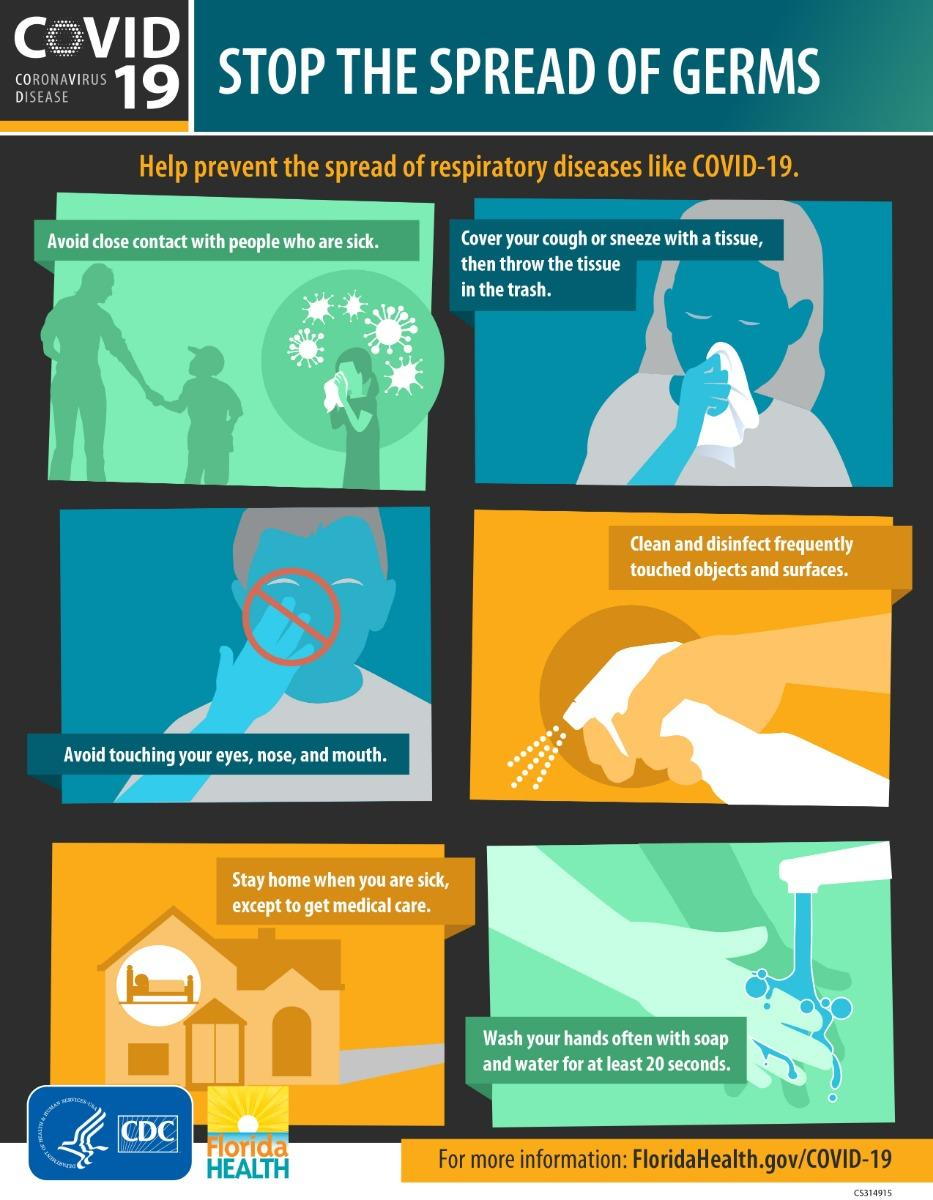Top 10 Questions About Our Pets and the COVID-19 Pandemic

- posted: Mar. 15, 2020
There is a ton of confusion flying around right now about people getting COVID-19, and concerns for our pets are expected.
What Is A Coronavirus?
- A family of viruses that can infect humans, mammals, birds, and fish.
- Canine Coronavirus is a mild infection affecting the digestive tract of puppies 6 weeks and younger that often resolves on its own.
- Canine Respiratory Coronavirus affects the upper respiratory tract similar to the common cold in people, and often resolves on its own.
- Feline Enteric Coronavirus rarely causes illness, but if it mutates into Feline Coronavirus, a fatal disease called Feline Infectious Peritonitis results.
Check out these podcasts from University of Illinois College of Veterinary Medicine!
The Round Barn Podcast: Zoonotic Disease and the Coronavirus
The Round Barn Podcast: Coronavirus - Is It Safe to Leave the House?
Do I Need to Worry About My Pet Getting Sick With COVID-19?
- As of March 12, 2020, there is no indication that COVID-19 infects pets.
- The dog in Hong Kong is not showing any signs of illness.
- The weak positive test results in the Hong Kong dog do not necessarily mean the dog is infected and ill – more testing and research are needed.
Pets and the Spread of Coronavirus by Professor Vanessa Barr of City University - Hong Kong
Are the Canine Coronavirus and Feline Infectious Peritonitis Vaccines Protective?
- Sadly, no they are not.
- The canine coronavirus vaccine is not recommended as of 2017, and there is no vaccine for the canine respiratory coronavirus.
- Feline Infectious Peritonitis (a cat coronavirus) vaccines are not recommended due to poor protection.
Can I Get a COVID-19 Infection from My Pet?
- As of 3/14/2020, pets do not seem to contract the virus and become ill.
- We do not yet know if pets can act as transports for virus particles
- Possible scenario: someone infected sneezes on your dog, you pet the dog, you rub your eyes or touch your face, you may be exposed.
What Happens If I or Someone in My Household Gets COVID-19?
- Sick people need to restrict or avoid contact with pets and other animals.
- Have someone in the household who is NOT sick care for the pets, or make arrangements for off-site care of your pets.
- People sick with COVID-19 should avoid contact with animals including petting, snuggling, kissing or being kissed/licked, and sharing food.
- If you must be around animals or care for animals while sick, please wear an appropriate face mask and wash your hands thoroughly before and after interacting with the animals.
What If I Have COVID-19 and My Pet Needs to Go to the Veterinarian?
- STAY HOME – Please do not risk infecting other people!
- If your pet is due for vaccinations, an elective routine surgery, or wellness check-up, please wait until you are cleared by your physician to bring your pet in for those services.
- If your pet needs veterinary medical care, you will need to contact the public health official assigned to your case, who will then contact the State Public Health Veterinarian to consult with the CDC regarding how to proceed.
- If the public health officials recommend your pet be seen, call the clinic to ensure they can set up an isolation area and handle the case.
What Should I Do if My Pet Gets Sick After Being Around Someone With COVID-19?
- Contact the public health official in charge of the person with COVID-19, who will then contact the State Public Health Veterinarian to decide the next steps.
Can My Pet Be Tested for COVID-19?
- Yes and no.
- Test kits are not readily available in all states for use with animals.
- Test kits are being developed and some veterinary college laboratories have testing options.
- Pets who are sick may be tested with the permission of the public health officials and state public health veterinarian.
How Can I Protect My Pet?
- Wash your hands often with soap and water.
- Avoid touching your nose, eyes and mouth with unwashed hands.
- Avoid close contact with people who are sick.
- Stay home when you are sick.
- Cover your coughs and sneezes.
- Disinfect all frequently used surfaces.
- Vaccinate your pets for other diseases as recommended by your veterinarian.
- Limit contact with your pets if you or someone close to you contracts COVID-19.
Should My Pet Wear A Face Mask?
- Although adorable on Fluffy and Fido, a face mask is not helpful.
- As pets do not seem to get sick from the virus at the time of writing this, a mask is not recommended.
- Masks ARE helpful if people sick with COVID-19/ Flu/ Colds wear and change them frequently, but they do not prevent un-infected people from contracting the virus.
More information and ways to protect your pets and yourself, and public health contacts
Pet Owner Guide to Infection Prevention - American Animal Hospital Association
When and How to Wash Your Hands - CDC
Pet Owner FAQ on Covid-19 - American Veterinary Medical Association
Hand washing video for kids - Florida Department of Health
COVID-19 Call Center and Updates - Florida Department of Health
Florida State Veterinarian - Florida Division of Animal Industry
Location
Find us on the map
Bellalago Veterinary Hospital
3809 Pleasant Hill Rd
Kissimmee, FL 34746, US

